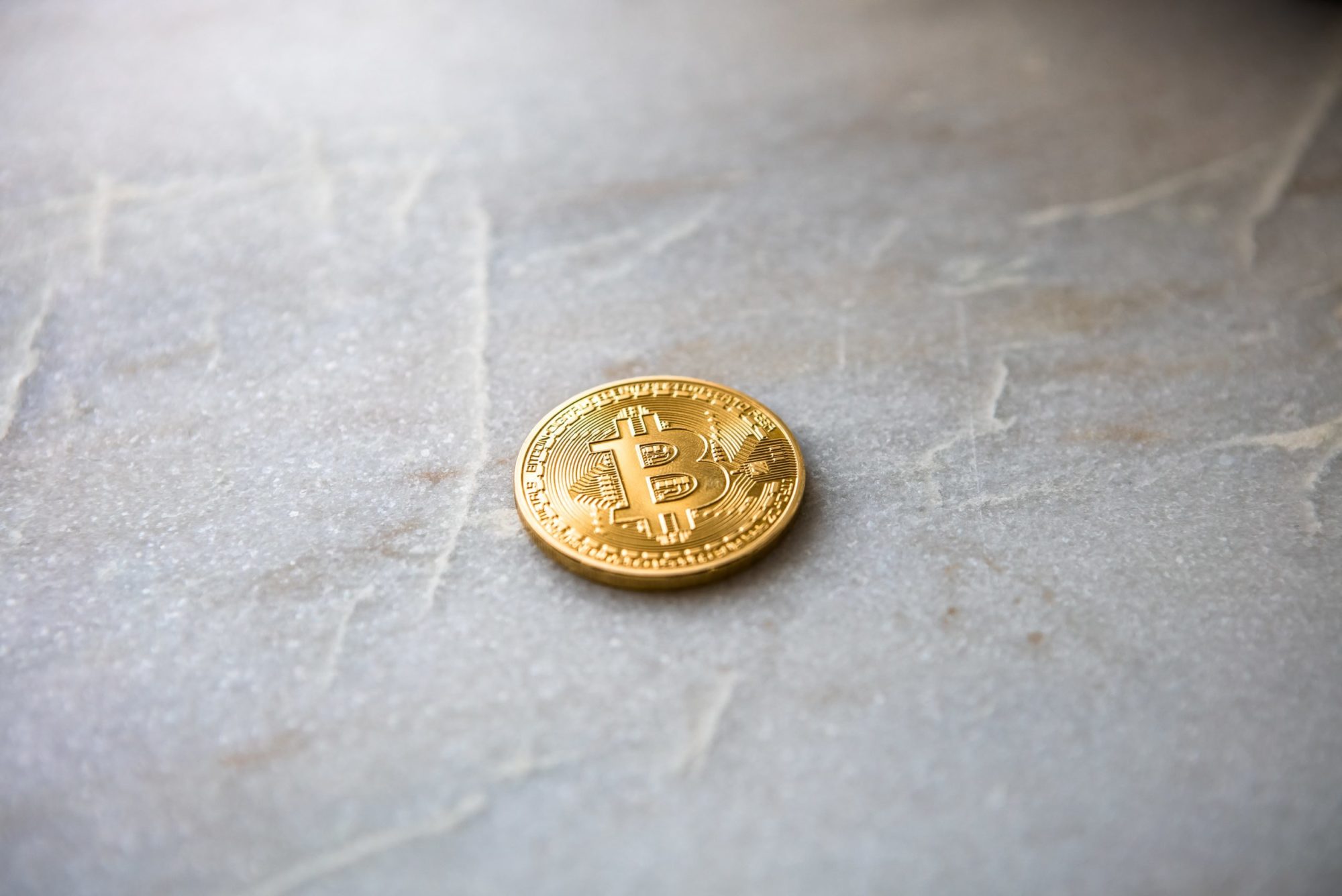BLUF: Cryptocurrency is an extremely complicated online currency. In an effort to protect its users from potential global economic collapse, the online currency is decentralized from any governing authority and completely transparent. But cryptocurrency values have heavily fluctuated alongside perception of its success, leaving investors, analysts, and world leaders alike to question what crypto means for national security and the future of global order.
After harping on my significant other for some time about his need to start investing, he finally came to his senses. Just as he was about to pull the trigger on a Bitcoin investment, its value plummeted. A few weeks later? He was looking at Dogecoin when WHAM! Same devaluation. Now I am not saying his particular investment restraint had anything to do with the recent cryptocurrency value swing but his almost failure made me think harder about cryptocurrency. Asking myself: What is it? How does it work? What gives it value? And, of course, does it have anything to do with #NatSec?
WHAT IS A CRYPTOCURRENCY?
Like other currencies, cryptocurrency (or just crypto) is a form of payment that can be utilized to purchase goods. Unlike other forms of currency (the dollar, euro, pound, etc.), it does not exist in a physical form (think printed money) nor is it issued by a central government body. Instead, crypto is a “digital asset” with records created and stored in a sort of online ledger with meticulous transaction records to control the creation and transfer of the currency, or “coin.” This meticulous tracking system is known as a blockchain.
K, BUT WHAT THE HELL IS A BLOCKCHAIN?
A blockchain is simply an online record of a transaction’s data. The chain grows by a “block” every time it is manipulated: sold, moved, added to, etc. And every block contains the timestamp and data for that transaction, which infamously cannot be corrupted or altered. “The beauty of the blockchain is that each block of the blockchain is bound to one another by cryptographic principles.” The blockchain, and all its data, is managed by millions of computers around the world so it cannot be centralized or stored in any one place. It is also completely transparent and anyone with a computer could access the information in the block.
Have two mins? Here is a good video explainer.
SO, A COMPUTER MANAGES ALL THIS FANCY DATA, BUT WHAT GIVES IT VALUE?
If you think about it long enough, you might start to realize that you’ve never questioned too hard why any currency has value. The basic premise of currency valuation is that its value is whatever someone deems it to be worth. For example, commodities and precious metals like furs, food and silver had stored value based simply on what you could trade for it. So in winter, furs were likely to be more valuable than in the summer. If there was a drought? Well then food’s value was likely to increase. But as the world aged, minted currencies became a thing and voi-la we had paper money. Paper money, as it exists today, is known as a “fiat currency.” A fiat currency is not backed by any commodity (the dollar used to be backed by the gold standard), but instead by “the faith that individuals and government have that parties will accept that currency.” So the dollars in your wallet are backed by the US government and are worth whatever the Federal Reserve deems it to be based on how much or little of it is available.
Because crypto is still so new as a currency, and its concept is still foreign to the mass public, its value is pretty volatile and thus can be fairly susceptible to public speculation.
As a decentralized currency with no government or commodity backing it, cryptocurrency is worth whatever someone is willing to pay for it. As faith in the crypto system increases, so does its value. For example, when major companies like Tesla started accepting Bitcoin (the oldest and most well-known form of crypto) as payment, it lent credibility to the currency and thus the value increased. But only a few months later Elon Musk announced his company would stop accepting the currency citing concerns, the value mimicked the concern and diminished. Because crypto is still so new as a currency, and its concept is still foreign to the mass public, its value is pretty volatile and thus can be fairly susceptible to public speculation. But at this point, until crypto becomes more widely accepted both by businesses worldwide and by the public, if it indeed does catch on, it will remain highly susceptible to that speculation – making it a somewhat risky investment.
GOT IT (MAYBE). BUT IS IT JUST AS RISKY AS ANY OTHER CURRENCY?
The general rationale for cryptocurrency is built on the idea that centralized financial institutions have an inherent risk of systematic failure. The warning of global economic collapse isn’t new and it isn’t even that unpopular. Google “economic collapse” and you’ll be scrolling through articles from the crazy to the credible about potential economic pitfalls (*makes note to self about future BLUF*). So, by decentralizing the transactions and adding transparency (real transparency), hypothetically the system has no middleman, very little chance of data corruption, and much lower risk of failure in the instance of global economic collapse.
WAIT. SO REMIND ME, WHY ISN’T EVERYONE USING IT THEN?
There are a handful of reasons why crypto hasn’t caught on:
- Crypto is an extremely tough concept to understand: Like John Oliver said, crypto is “everything you don’t understand about money combined with everything you don’t understand about computers.” And he isn’t wrong. Because, while I would argue that many people in America don’t fully understand the ins and outs of a single stock they just bought shares of, I would bet money (pun intended) that the stock market concept is easier to understand than blockchain code. And when you don’t know what you’re buying, then it’s not an investment, it’s a gamble. Thus, not only will it be tough to convince folks to buy something that they don’t understand, but it might also actually be unethical to do so.
- Even after you understand crypto, it is still arguably a gamble: Because bitcoin is so new and so volatile, speculation is more about understanding human psychology than it is about understanding economics. There is speculation in the value of the dollar but it’s based-on years of market analysis and known economic parameters. The future of crypto is truly unknown and anyone who is buying it is either hoping or assuming that it will catch on.
- Financial institutions don’t want it either: This one has a lot to it but it isn’t really complicated. Crypto operates, at this point, entirely online. With its success comes the possible disappearance of banking institutions. Think movies: First you had Blockbuster but then came Redbox. After Redbox came streaming services (think: Hulu, Prime Video, Netflix 2.0). How many Blockbusters and Redboxes do you see anymore? Bitcoin may end up being to Wells Fargo, what Hulu was to Blockbuster.
- Governments don’t want it to: For a few reasons, the government isn’t thrilled with the idea of crypto. First, since one of the tenets of crypto is decentralization and deregulation, the government plays no role in the current crypto reality as it exists. This doesn’t play well with the Fed, since one of its jobs is to regulate and stabilize currencies. Second, governments are concerned that without central oversight, there is no way to back crypto should a Bitcoin exchange be hacked, and that there’s extremely limited legal recourse via the US court system should someone be scammed (an increasingly common trend). Finally (and we’ll discuss this later) government’s aren’t psyched about the legitimate concern that crypto has opened a whole new avenue for illicit crime transactions (think: money laundering, tax evasion, black market commodities).
YIKES. WELL, THEN SHOULDN’T WE BE TALKING ABOUT NATIONAL SECURITY AND CRYPTO?
Hell yeah, we should. At a BBQ a few weeks ago, I talked to a PhD economist who mused with skepticism about the guys doing their dissertations on bitcoins. But in writing this piece, I couldn’t stop thinking about how I want to go back to school just to research how crypto is going to upend national security. Because when you start dipping your toe into the crypto waters, you fall off the sandbar pretty quickly into an ocean full of hypothetical national security crises.
Let’s look at a few:
- The basic: One thing that I didn’t mention about fiat currency (see above), is how governments are able to control their own money to curb and set inflation. The idea behind this manipulation is price and market stability for goods and services. Without centralized oversight which, if you remember, crypto doesn’t have, there is no way to control any of that. Monetary policy and national security inherently go hand in hand.
- The obvious: Because of growing concerns over government deficits (and look no further than the good old US of A), crypto may become a preferred method of storing value. Once it becomes a legitimate method of currency, rogue nations and terrorist groups will be able to conduct business unfettered. Iran and North Korea are reportedly already using Bitcoin to avoid sanctions, and terrorist organizations like ISIS have used crypto to buy weapons and pay fighters.
- The icky: Ever heard of the Silk Road? No, not the network of trade routes connecting the East and West from the 2nd century BCE to the 18th century, but the online black market deep in the dark web? Me neither but here we are. Turns out, before it was closed down by US authorities, around $1 billion in Bitcoin was tied to the black market and used to buy drugs and other illegal goods. A 2019 study found that of approximately 106 million Bitcoin users spending a combined $1.9 trillion of Bitcoin between 2009 and 2017, approximately 6 million users were classified as being involved in illegal activities – or 5.9% of all users. Nearly 6% already seems high to me but digging in, that 6% “constitutes about 30% of all Bitcoin transactions.” The study found the “full extent of illegal activity is estimated at about $76 billion a year.”
- The great power problem: When China announced it would restrict crypto activity, crypto selloff took a major dive. Despite the major popularity of crypto in China, the crackdown was seen as a way of bolstering the country’s own government-controlled digital currency. Some analysts see China’s move as a “potential, but very long-term” challenge to the US dollar dominance. Fun fact: While many US officials are critical of crypto, the OG Treasury Secretary Janet Yellen and Federal Reserve Chairman Jerome Powell are actively working on a central bank digital dollar prototype, possibly to be unveiled as early as July 2021!
While the fundamentals of crypto can be tricky to grasp, so is the future of the digital currency concept. Speculation about what comes next in terms of value, consequences, challenges, and adoption are all just that — speculation. So if you want to get in now, you’re certainly not alone. But while many people see crypto as the currency of the future, plenty of others just aren’t sold. Only time will be able to tell us how this concept will change the world.
That’s all for this one, babes.
No pressure. No bullshit. Just THE BABES BLUF.
THE BABES BLUF (bottom line up front) is a different kind of current affairs and lifestyle blog that talks about issues in a way women (and men!) can relate to and enjoy. To read more from THE BABES BLUF, visit www.thebabesbluf.com and subscribe to never miss a #BLUF, and check them out on Twitter or Instagram. For more THE BABES BLUF pieces, see here.





















